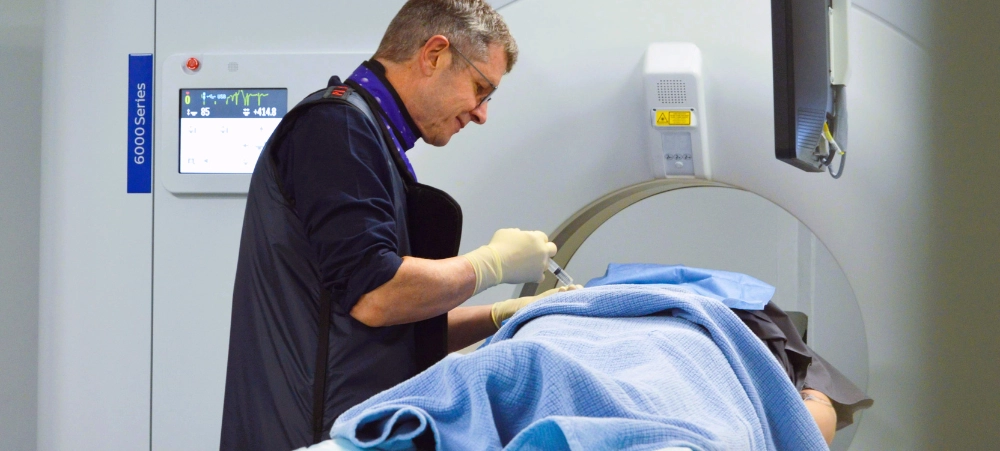
Goodbye, boring socks and soap-on-a-rope! Here’s what to get your man this Valentine’s Day
Shopping for men can be notoriously tricky, which is why so many of us fall back on yet another pair of socks or underwear when the occasion strikes. While there’s nothing wrong with this, they’re certainly not the most creative or exciting gifts around. Instead of opting for the expected this Valentine’s Day, why not treat the man in your life to something special he doesn’t already have, or something practical he will use? Here is our selection of fun and handy gifts for men to suit all budgets: Massage oil This is a win-win kind of gift: Not only is a good quality massage oil a versatile item to have in the home (especially if you’re into exercise and sports), but it also gives your man the perfect opportunity to test it out on you… As we said, win-win! When selecting a massage oil, choose one from a reputable brand known for its good quality and beneficial ingredients. SOiL Relaxing Massage Oil is blended with lavender, ylang-ylang and geranium to calm, de-stress and revive while hydrating the skin. It contains the finest locally sourced organic ingredients to ensure optimum skincare benefits. Next-generation water decanter When you think of Valentine’s gifts, a water decanter might not be at the top of your mind, but the Mayu Swirl is the ultimate gift. Not only will it delight a gadget lover and wellness enthusiast, but it is also a beautiful décor piece. It restores drinking water’s natural properties and structure by aerating the water, returning it to its sweet and silky texture. Not only does this increase hydration, but it also improves taste. The Mayo Swirl can also be used to aerate wine and even juice. Shop here. Grooming products Simple but handy grooming products are always a great gift for men. It’s also an excellent opportunity to introduce him to a greener brand (if he’s not converted already!). The Earthsap East India Islands For Men range is free from artificial ingredients and additives, is kind to the skin and the Earth and is beautifully fragranced with spicy masculine scents of cinnamon, cloves, aniseed and citrus. We love the Earthsap East India Islands Body Wash For Men and Deodorant For Men. Treat him to an affordable body scrub that refreshes, purifies and rejuvenates skin in one simple step. Bodylab’s newly launched Exfoliating Salt Scrubs help remove dead skin cells while improving circulation, leaving skin feeling refreshed. Bodylab Hyaluronic Complex + Exfoliating Salt Scrub contains hydrating hyaluronic acid to replenish moisture and keep skin soft and plump, while Bodylab Vitamin C Complex + Salt Scrub utilises the power of vitamin C to brighten and purify skin. The sound of relaxation We could all do with a bit of relaxation, right? Relaxound Oceanbox Soundboxes are here to bring tranquillity to your space and your mind. The perfect gift for ocean lovers, these incredible soundboxes bring the sounds of the ocean into your home, transporting you straight to the beach. Not only do they create a serene environment, but they also serve as an eye-catching décor piece. Shop on Takealot. Relief for tired muscles Again, treatment products for sore or tired muscles might not come to mind immediately when you think “Valentine’s Day”, but if your man is into his sports or fitness, he’ll be ever so grateful! Help him soothe achy or fatigued muscles with Deep Freeze Pain Relieving Gel, a special ingredient that cools the skin and provides quick pain relief. It helps with muscle pain and stiffness, sprains and bruises and can even soothe lower back pains, rheumatic pain, and pain in the legs and thighs. For fast-acting and long-lasting pain relief, we recommend Deep Freeze Pain Relief Cold Patch Pack. Thesefast-acting cold patches deliver cooling relief from strains, sprains, muscle and joint pain, as well as minor injuries. Enhance his gut health We all know the importance of maintaining one’s gut health. Linked to a stronger immune system, better skin, and overall improved health, a healthy gut is key to overall wellness. Our gut requires fibre, and the truth is that most of us are not consuming enough raw, high-fibre foods. Cool Stool is the super seed mix daily supplement that’s here to improve your health and enhance gut function. It’s also great a great cholesterol binder to assist those with high cholesterol. Packed with chia seeds, linseeds, psyllium husk, buckwheat and digestive bran, Cool Stool is bursting with fibre, healthy fats, and a wide range of essential nutrients. This ultra-healthy seed mix is perfect for your cereal, smoothie, or yoghurt. It is available in Original, Cranberry, Vanilla, and Gluten-Free variants. This Valentine’s Day, we urge you to take an original approach when shopping for the special man in your life. Remember that whether you choose a unique, out-of-the-box gift or a trusted, practical item you know he’ll use, it’s the thought that counts!


































